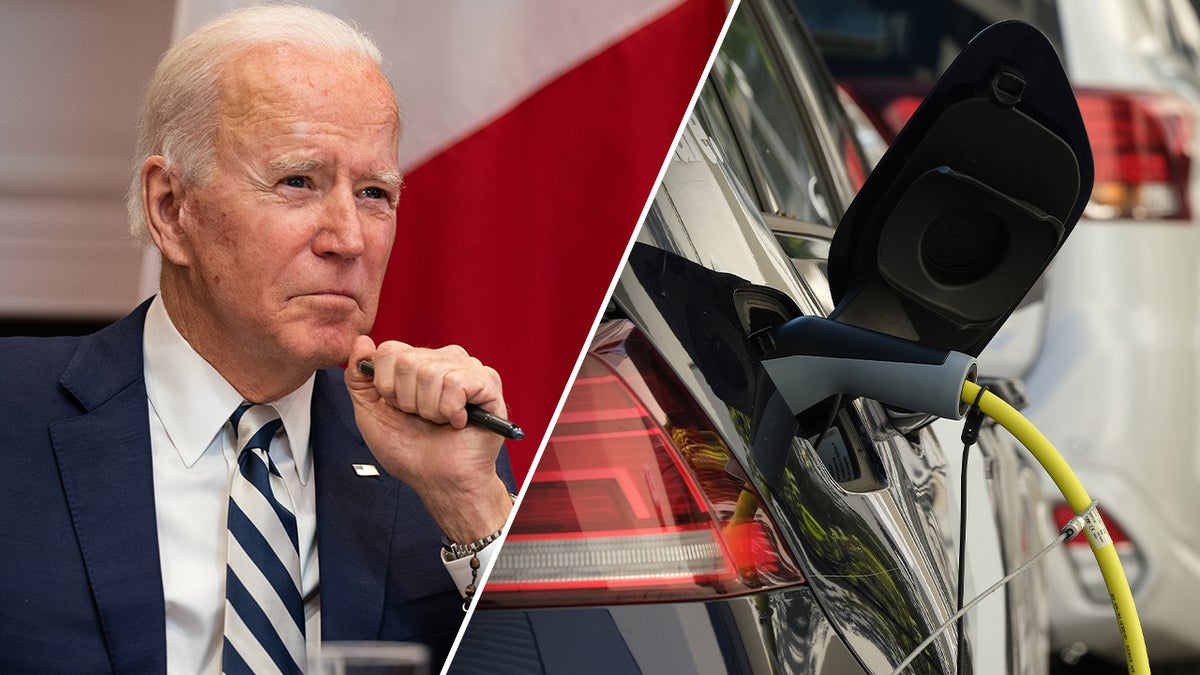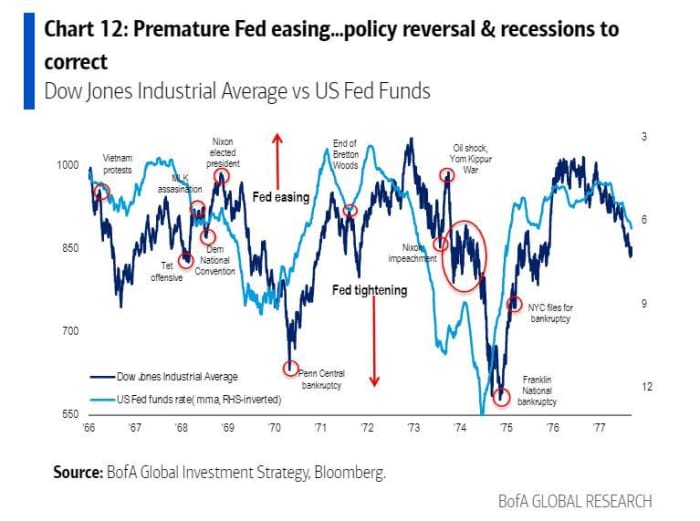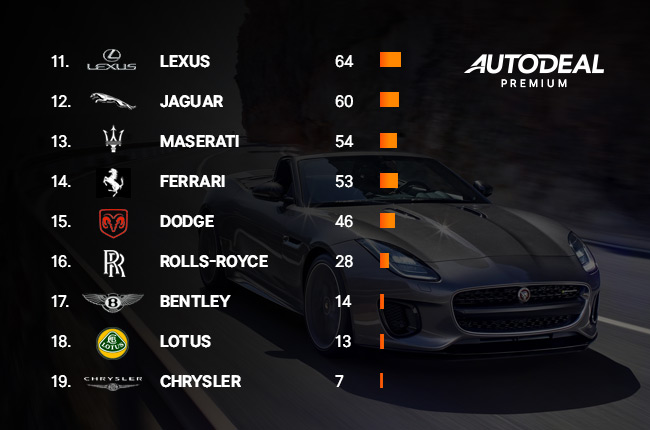Resistance To EV Mandates Intensifies: Car Dealers Push Back

Table of Contents
Financial Concerns and Investment Hurdles
The transition to selling and servicing EVs presents significant financial challenges for car dealerships. The high initial investment costs and uncertain return on investment (ROI) are major factors driving resistance to EV mandates.
High Initial Investment Costs
Dealerships require substantial upfront investments to prepare for the EV era. These investments include not only the cost of EVs themselves, but also significant infrastructure upgrades.
- Cost of installing Level 2 and DC fast chargers: Installing charging infrastructure is expensive, requiring significant electrical upgrades and potentially substantial land modification. The cost varies widely depending on the number of chargers, their power output, and the existing electrical infrastructure.
- Need for EV-specific training programs for mechanics: EVs have significantly different components and repair procedures compared to gasoline-powered vehicles. Dealerships need to invest in extensive training programs for their technicians to ensure they can properly diagnose and repair EVs.
- Inventory management challenges due to differing EV models and battery technologies: Managing EV inventory presents unique challenges, requiring specialized storage and handling to ensure battery health and prevent damage. Different EV models also have varying charging requirements and component designs, complicating inventory management.
- Potential for stranded assets if EV adoption slows: The substantial investment in EV infrastructure and training could become stranded assets if EV adoption is slower than anticipated, leaving dealerships with underutilized resources and significant financial losses.
Uncertain Return on Investment (ROI)
The long-term profitability of investing in EV infrastructure and sales remains uncertain, creating significant hesitation among dealerships.
- Concerns about consumer acceptance and purchase rates of EVs: Consumer demand for EVs varies greatly depending on factors such as price, range, charging infrastructure availability, and government incentives. Uncertain consumer demand makes it difficult to predict the ROI on EV investments.
- Uncertainty surrounding future government subsidies and tax incentives: Government policies regarding EV subsidies and tax incentives can change frequently, creating uncertainty for dealerships planning their investments. A reduction or elimination of these incentives could significantly impact the profitability of EV sales.
- Potential for lower profit margins on EV sales compared to gasoline vehicles: The current profit margins on EV sales are often lower compared to gasoline vehicles, due to factors such as lower service revenue and higher upfront investment costs.
Challenges in EV Sales and Consumer Perception
Beyond the financial hurdles, car dealerships face significant challenges related to EV sales and consumer perception.
Range Anxiety and Charging Infrastructure Limitations
A major barrier to EV adoption is range anxiety – the fear of running out of battery power before reaching a charging station. This is exacerbated by the limitations of the current public charging infrastructure.
- Geographic disparities in charging infrastructure density: Charging infrastructure is not evenly distributed, with significant gaps in rural areas and underserved communities. This limits the practicality of EVs for many consumers.
- Charging time compared to refueling gasoline vehicles: Charging an EV takes significantly longer than refueling a gasoline vehicle, which is a major inconvenience for many consumers.
- Concerns about battery life and degradation: Consumers are also concerned about the lifespan of EV batteries and the potential for performance degradation over time.
Consumer Education and Misconceptions
Many consumers lack a thorough understanding of EVs, leading to hesitation in adopting the technology.
- Need for improved consumer education campaigns: Targeted consumer education campaigns are needed to address common misconceptions and highlight the benefits of EV ownership.
- Addressing common myths and misconceptions about EVs: Many myths surrounding EV performance, charging, and maintenance need to be debunked to encourage greater adoption.
- Highlighting the environmental and economic benefits of EV adoption: Emphasis needs to be placed on the long-term environmental and economic benefits of transitioning to EVs.
Logistical and Operational Challenges
Dealerships also face significant logistical and operational challenges in adapting to the EV market.
Supply Chain Disruptions and Parts Availability
The EV supply chain is currently experiencing significant disruptions, making it difficult for dealerships to obtain necessary parts and components.
- Shortages of batteries and semiconductors: Shortages of key components like batteries and semiconductors are delaying EV production and repair processes.
- Longer lead times for parts compared to gasoline vehicles: Obtaining replacement parts for EVs often takes significantly longer than for gasoline vehicles.
- Increased repair costs due to complex EV technology: Repairing EVs can be more complex and expensive than repairing gasoline vehicles, due to the sophisticated technology involved.
Lack of Skilled Technicians
A shortage of technicians trained in EV repair and maintenance poses a significant operational challenge.
- Need for increased investment in technician training programs: Significant investment is needed in training programs to equip technicians with the skills to service and repair EVs effectively.
- Attracting and retaining skilled EV technicians: Attracting and retaining qualified EV technicians requires competitive salaries and benefits packages.
- Development of industry-recognized EV repair certifications: Establishing industry-recognized certifications will standardize EV repair training and ensure consistent quality of service.
Conclusion
The resistance to EV mandates is not simply opposition to change; it stems from valid concerns among car dealerships regarding the substantial financial, logistical, and operational hurdles. Addressing these concerns through collaboration between policymakers, manufacturers, and dealerships is crucial for a successful and equitable transition to electric vehicles. Finding solutions that mitigate the risks and uncertainties associated with EV mandates, such as providing adequate financial support and developing robust training programs, is vital for ensuring the smooth adoption of EVs. Continued dialogue and finding solutions to the challenges related to EV mandates and its impact on dealerships is critical for the future of the automotive industry. Let's work together to find effective solutions to support the transition to a sustainable transportation future.

Featured Posts
-
 Former Charlottesville Weatherman Arrested On Serious Sexual Extortion Charges
Apr 25, 2025
Former Charlottesville Weatherman Arrested On Serious Sexual Extortion Charges
Apr 25, 2025 -
 Crude Oil Market Update Key Developments On April 24th
Apr 25, 2025
Crude Oil Market Update Key Developments On April 24th
Apr 25, 2025 -
 Pause On Diversity And Climate Disclosures Canadian Regulators Respond To Criticism
Apr 25, 2025
Pause On Diversity And Climate Disclosures Canadian Regulators Respond To Criticism
Apr 25, 2025 -
 Vehicle Subsystem Issue Forces Blue Origin To Postpone Launch
Apr 25, 2025
Vehicle Subsystem Issue Forces Blue Origin To Postpone Launch
Apr 25, 2025 -
 Nba 3 Point Contest 2024 Herros Victory Over Hield
Apr 25, 2025
Nba 3 Point Contest 2024 Herros Victory Over Hield
Apr 25, 2025
Latest Posts
-
 Are High Stock Market Valuations A Cause For Concern Bof A Says No
Apr 26, 2025
Are High Stock Market Valuations A Cause For Concern Bof A Says No
Apr 26, 2025 -
 The Ethics Of Betting On The Los Angeles Wildfires And Similar Events
Apr 26, 2025
The Ethics Of Betting On The Los Angeles Wildfires And Similar Events
Apr 26, 2025 -
 Are We Normalizing Disaster Betting The Los Angeles Wildfires Example
Apr 26, 2025
Are We Normalizing Disaster Betting The Los Angeles Wildfires Example
Apr 26, 2025 -
 The China Factor Analyzing The Difficulties Faced By Premium Car Brands
Apr 26, 2025
The China Factor Analyzing The Difficulties Faced By Premium Car Brands
Apr 26, 2025 -
 Gambling On Catastrophe The Los Angeles Wildfires And The Future Of Disaster Betting
Apr 26, 2025
Gambling On Catastrophe The Los Angeles Wildfires And The Future Of Disaster Betting
Apr 26, 2025
